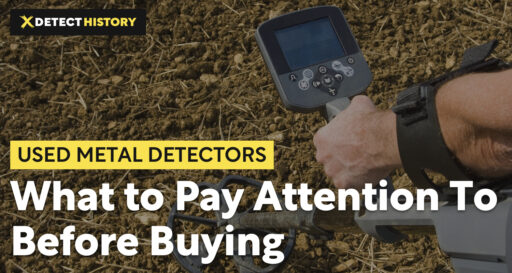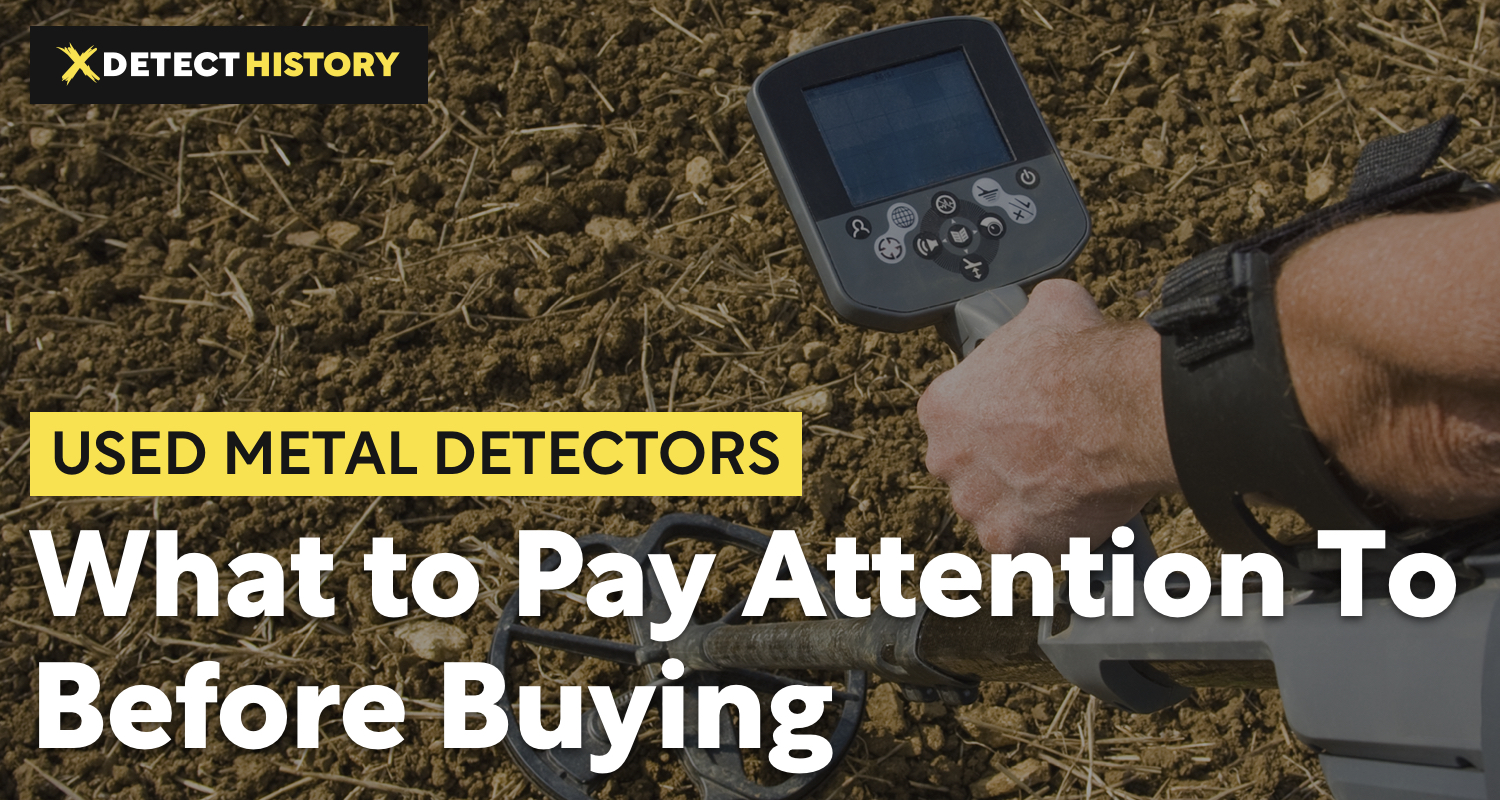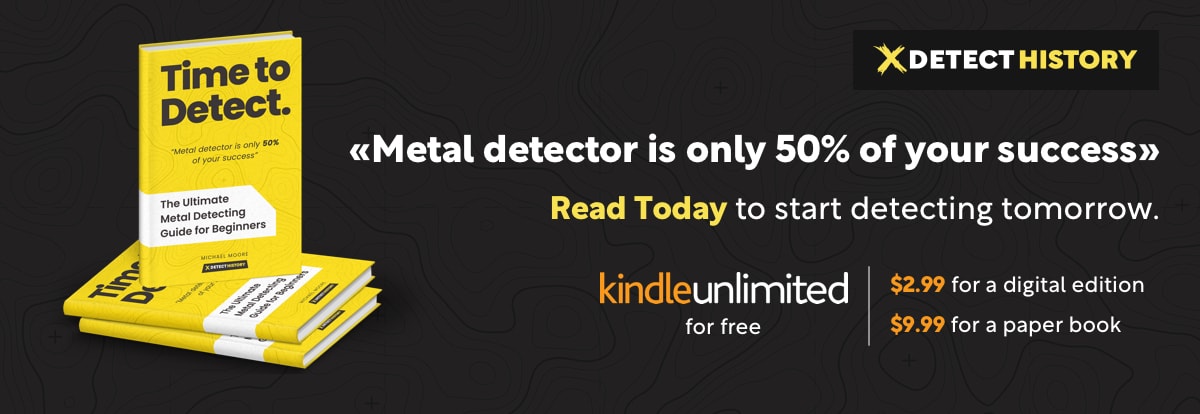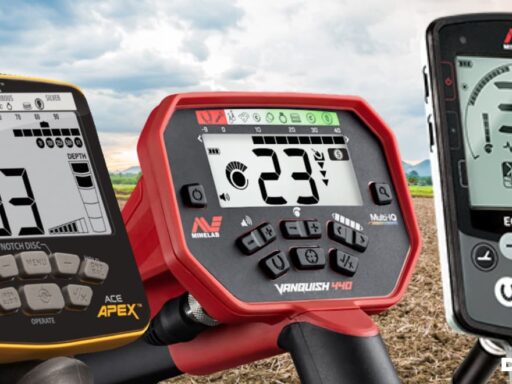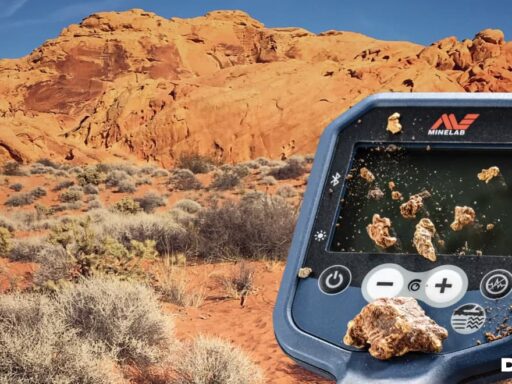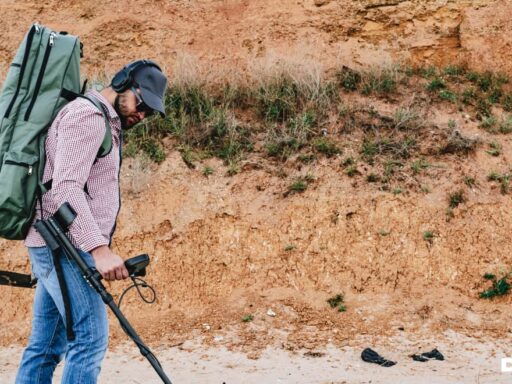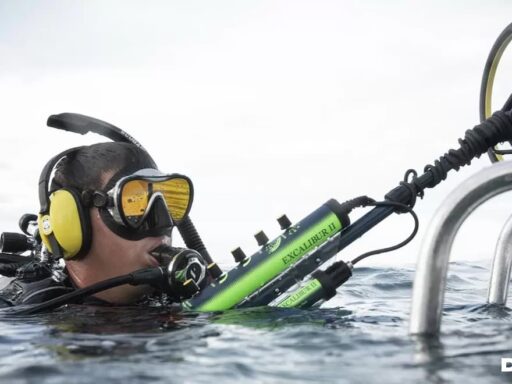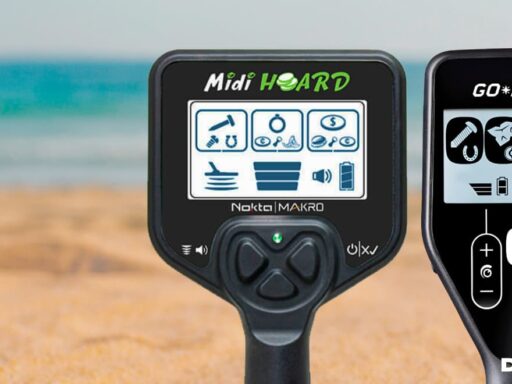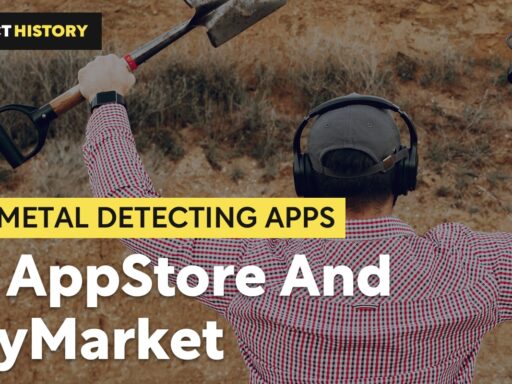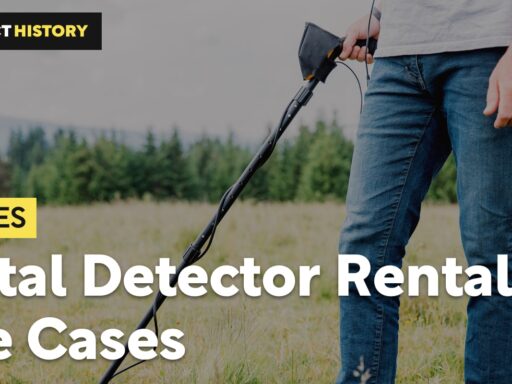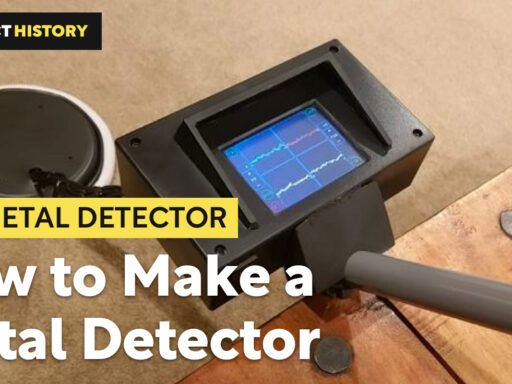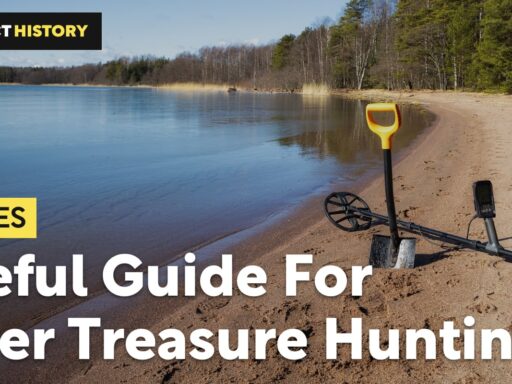Metal detecting as a hobby is exciting and engaging, so more and more people consider joining this hobby. However, few are ready to immediately invest into a brand new metal detector directly from the shelf. This is understandable. Not every new aspired detectorist will remain in this hobby for longer than a year; people are different, and some eventually do not enjoy treasure hunting as they thought they would. So, obviously, getting a new and expensive machine makes little sense until you are sure that treasure hunting is your thing.
Another reason why beginner detectorists should consider maybe buying a used machine first is lack of knowledge and experience, and as a result, very poor results during their first metal detecting sessions, and inability to go hunting for more complicated targets. Everyone needs something to begin with, from simple targets and locations, to more demanding locations and more complicated targets. Therefore, unless you as a beginner participate in a club with many experienced people around you, who can give you some tips about the machine, or on the field, or may borrow one of their machines to you – don’t rush to purchase an expensive metal detecting machine to make your first steps. Start from something simple, and maybe look for a used device.
Where To Buy a New or Used Metal Detector?
Beginner treasure hunters who have a big metal detecting community in their area usually get their first used machines from other, more experienced members of the community who have more than one device, or want to get rid of the older/more primitive ones to get themselves more advanced metal detectors. Those newbie treasure hunters who are less lucky, and don’t have reliable people around have two other options – to buy from official dealers (or in stores), or to buy from private sellers.
Official Dealers and Stores
Of course, official online dealers, or offline stores, sell mostly new metal detectors. However, these items are not the ones you throw away when you get yourself a new one, and many experienced and seasoned detectorists actually sell their previous devices back to the stores where others can buy these used metal detectors for sale. It is always better to get used machines from official dealers that collaborate with the brands. However, buying used metal detectors for sale by owner may be easier, and even cheaper.
Private Sellers
Official dealers and stores may not have such a choice and variety of used machines as one may find among devices sold by private sellers. Private sellers are usually either small businesses that purchase used machines from everywhere, and then resell them, or just private individuals who sell their own devices on various platforms. In both cases, the choice is bigger, and choosing a device may be easier than waiting for a proper machine to appear in the official store. Also, buying from private sellers is usually cheaper. However, when you buy from private sellers, you have to be twice as attentive compared to when you buy from the dealers, and double-check the devices closely, to avoid buying some old trash of a machine.
What to Pay Attention To
Generally, buying any machine, be it new or used, means double-checking it carefully before you pay money. Getting devices from official dealers is safe, because if the device is rigged, you can always bring it back. With private sellers, this does not work (with rare exceptions). So, read the list below, describing the most important steps to take when checking a used metal detector before you pay any money for it.
Assess the Way a Metal Detector Looks
Look at the metal detector all around really carefully. Check whether the coating/paint/rubber and plastic elements look god, or whether they are worn out. Look at how all the elements mate, or whether there are gaps between the elements. Look at the details carefully and make sure all the elements – shaft, control box, cable, coil, and so on – belong to the same machine and are by the same manufacturer (unless you are told beforehand they are not). You can shake the device to check if it rattles, or if anything does not hold. In other words, visually check everything you can check.
Check Whether All Accessories are In Place
The configuration of the machine and all accessories that the owner sells must be listed in the advertisement in advance. Check whether the metal detector has all the important parts – shaft, control box, elbow board, search coil, cables, headset, etc., etc. If other accessories like compatible coils, chest or hip mounts, and so on, are offered, make sure it all really works with this particular metal detector, whether it holds, and whether the electronics works together (for example, if you get headphones together with the device).
Check Whether the Coil Has Cracks or Chipped Spots
Search coils are often the most damaged parts of any metal detector, because they interact with the surfaces most of all. The more damaged the coil is, the poorer its performance is likely to be. Also, you should check how the coil holds on the shaft; the bracing of the coils is often damaged, especially in worse for wear devices.
Check Whether the Control Box Connecter and Search Coil Cable Are Intact
Cables and connecters are two other elements that wear out quickly. The cables can be damaged when caught by the grass or tree branches; connecters also get damaged due to sloppy usage, or unfortunate handling of the machine. If the machine is dropped, the connectors can be damaged by the cables that unplug, and so on. However, you as a new user will need all those parts, to check them well.
Turn the Metal Detector On and Test All Buttons
If the metal detector is alright visually, assemble it, switch it on, and test all buttons on the control box. Look how the display works, and how it reflects all the functions and features, and how well it responds to your actions.
Double-Check All Functions and Whether the Metal Detector Is Operating
Even if the detector seemingly works well, you should still test its features and functions in the field, so to say. Many private sellers will tell you that the machine is fine, and works like a charm, and that you are just wasting time checking it this way and that way, but never mind that. Ideally, you should be able to swing the coil upon the soils and test how the metal detector reacts to different metal objects underground. Or at least grab a couple of different objects with you before you meet the seller, and test the metal detector with those objects. If you feel you are not experienced enough to assess the results of such a test drive properly, take a more experienced friend with you, if possible.
If help from a friend is impossible, read carefully about all the features and functions of the metal detector model you want to get from the private seller, perhaps watch a couple of videos on YouTube, and so on, before you meet the seller. This way, you will at least be aware how the metal detector should behave in your hands.
Used Metal Detectors By Popular and Reliable Brands
There are many reliable manufacturers that make high quality metal detectors which perform well even after years of service, and you can buy them for sure to use further. Look for used Whites metal detectors, used Minelab metal detectors, or used Garrett metal detectors. Finding some used Fisher metal detectors is less probable, but they are still out there somewhere. The choice of used machines is quite big, just decide what functions and features you’d like to have in your machine.
Find out more about metal detecting with our ultimate metal detecting guide for beginners:
